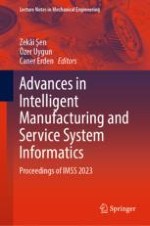2024 | OriginalPaper | Chapter
Exploring the Transition from “Contextual AI” to “Generative AI” in Management: Cases of ChatGPT and DALL-E 2
Authors : Samia Chehbi Gamoura, Halil İbrahim Koruca, Kemal Burak Urgancı
Published in: Advances in Intelligent Manufacturing and Service System Informatics
Publisher: Springer Nature Singapore
Activate our intelligent search to find suitable subject content or patents.
Select sections of text to find matching patents with Artificial Intelligence. powered by
Select sections of text to find additional relevant content using AI-assisted search. powered by
